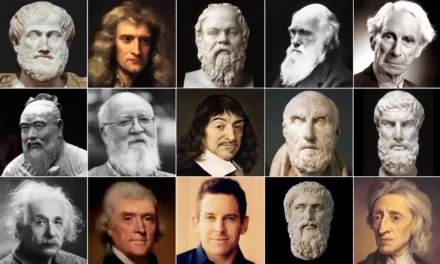
The Meritocracy Paradigm: Striving for Fairness and Excellence
I
n the fabric of our societal ideals, meritocracy emerges as a beacon of fairness and excellence, promising individuals success based on their abilities, efforts, and achievements. As we delve into the intricacies of meritocracy, it becomes evident that understanding its foundational principles is essential for navigating its landscape effectively. Let us explore the key subtopics that illuminate the essence of meritocracy and its implications for society.
By incentivizing individuals to excel in their respective fields, meritocracy drives innovation, creativity, and productivity.
Embracing Meritocracy
At its core, meritocracy champions the principle that individuals should be rewarded based on their merit—skills, efforts, and accomplishments—regardless of external factors. This principle underscores the essence of fairness and equal opportunity, providing a platform where everyone has the chance to succeed based on their merits. By embracing meritocracy, we acknowledge the intrinsic value of talent and hard work, fostering a culture of excellence and achievement.
In examining the dynamics of meritocracy, it is crucial to recognize its role in various domains, from education to employment and beyond. Within educational institutions, meritocracy encourages a pursuit of knowledge and excellence, motivating students to strive for academic success. In the realm of employment, meritocracy serves as a guiding principle for recruitment and advancement, ensuring that individuals are rewarded based on their skills and contributions to the workforce.
Moreover, the ethos of meritocracy extends beyond individual success to societal progress. By fostering a culture where merit is valued and rewarded, meritocracy incentivizes innovation, creativity, and productivity. It fuels competition and drives individuals to push the boundaries of achievement, ultimately contributing to the advancement of society as a whole. In embracing meritocracy, we unlock the collective potential of individuals and propel society towards greater heights of excellence.

At its core, meritocracy champions the principle that individuals should be rewarded based on their merit—skills, efforts, and accomplishments—regardless of external factors.

The Promise of Merit and Excellence
The essence of meritocracy lies in its promise of recognizing and rewarding excellence in all its forms. By prioritizing merit, we create a system where talent and hard work are celebrated and individuals are empowered to reach their full potential. Meritocracy fosters a culture of achievement and innovation, inspiring individuals to push boundaries and pursue excellence in their endeavors.
Moreover, meritocracy serves as a catalyst for societal progress and development. By incentivizing individuals to excel in their respective fields, meritocracy drives innovation, creativity, and productivity. It cultivates a competitive spirit that spurs growth and advancement, ultimately benefiting society as a whole. In embracing meritocracy, we unlock the collective potential of individuals and propel society towards greater heights of excellence.
Furthermore, meritocracy serves as a catalyst for societal progress and development. By incentivizing individuals to excel in their respective fields, meritocracy drives innovation, creativity, and productivity. It cultivates a competitive spirit that spurs growth and advancement, ultimately benefiting society as a whole. In embracing meritocracy, we unlock the collective potential of individuals and propel society towards greater heights of excellence.
The essence of meritocracy extends beyond individual endeavors and societal progress to its implications in governance. In the realm of governance, meritocracy holds the promise of ensuring that individuals with the requisite skills, expertise, and dedication are entrusted with leadership roles. By prioritizing merit in political appointments and decision-making processes, meritocracy strives to enhance the efficiency and effectiveness of governance. Leaders selected based on merit are better equipped to address complex challenges, formulate evidence-based policies, and steward resources responsibly, ultimately contributing to the well-being and prosperity of society.
Furthermore, meritocracy in governance fosters accountability and transparency, key pillars of democratic governance. Leaders chosen based on merit are held to higher standards of performance and integrity, as their actions are subject to scrutiny by both institutions and citizens. Transparent selection processes and merit-based appointments instill public trust in the legitimacy of governance structures, enhancing civic engagement and participation. By upholding the principles of meritocracy in governance, societies can mitigate the risks of nepotism, corruption, and incompetence, ensuring that leadership positions are occupied by individuals capable of steering the course of the nation towards progress and prosperity.

Sharpen those skills!
Enter your information to get our FREE practice exercises so you can hone your critical thinking and reasoning skills!
Meritocracy thrives when merit is assessed based on objective criteria, and individuals are given equal opportunities to showcase their talents and abilities.
Navigating Meritocracy with Integrity
As we navigate the terrain of meritocracy, it is imperative to uphold principles of integrity, transparency, and fairness. Proper mechanisms must be in place to assess and evaluate individuals’ merits objectively, ensuring that the system remains free from bias and discrimination. Meritocracy thrives when merit is assessed based on objective criteria, and individuals are given equal opportunities to showcase their talents and abilities.
Furthermore, fostering a culture of mentorship and support is essential in cultivating meritocracy. By providing guidance and encouragement to individuals, we empower them to hone their skills and talents, ultimately contributing to their success in a meritocratic society. Through collective effort and collaboration, we can uphold the ideals of meritocracy and create a society where excellence is recognized, celebrated, and rewarded.
Moreover, transparency and accountability are paramount in maintaining the integrity of meritocracy. Clear criteria for evaluating merit ensure that individuals understand how their performance is assessed and how decisions are made. By promoting transparency and accountability, we foster trust in the meritocratic system and uphold its principles of fairness and equal opportunity. In navigating meritocracy with integrity, we ensure that it remains a force for positive change, empowering individuals to achieve their full potential and contributing to the greater good of society.
I
n conclusion, meritocracy stands as a cornerstone of fairness and excellence in our societal framework. By embracing its principles and navigating its landscape with integrity, we can unlock the full potential of individuals and propel society towards greater heights of achievement. Let us strive to cultivate a culture where merit is celebrated, and everyone has the opportunity to thrive based on their talents, efforts, and achievements.
Share your thoughts with the Thought Academy community in the Comments section below.

Sharpen those skills!
Enter your information to get our FREE practice exercises so you can hone your critical thinking and reasoning skills!






0 Comments